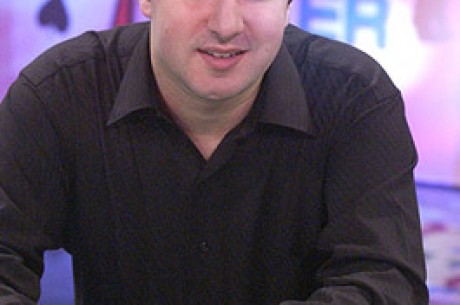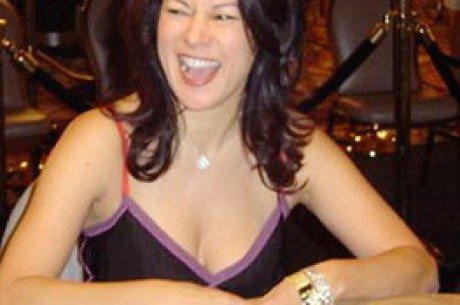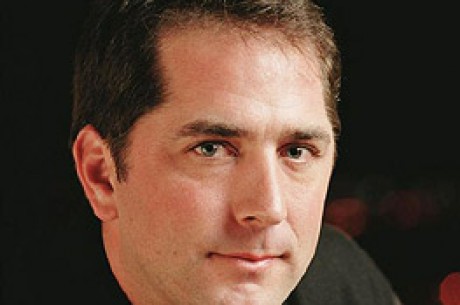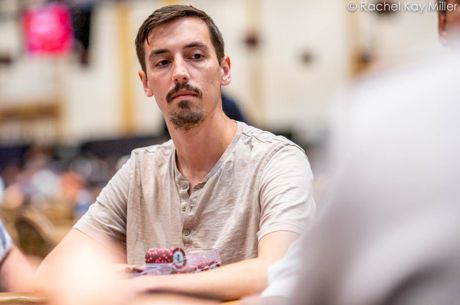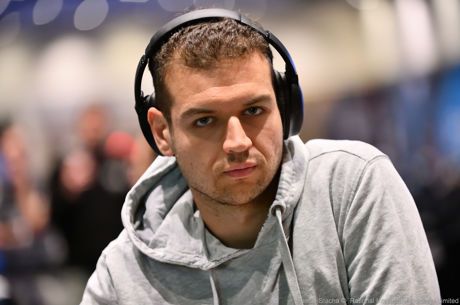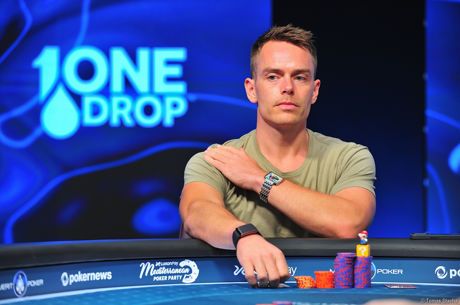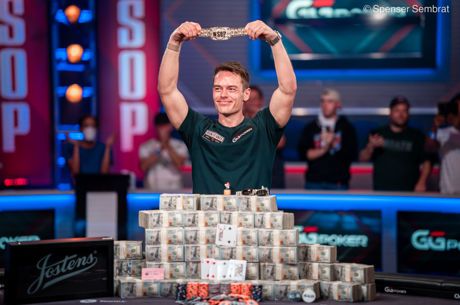Talking Poker With Canada's Dave Scharf
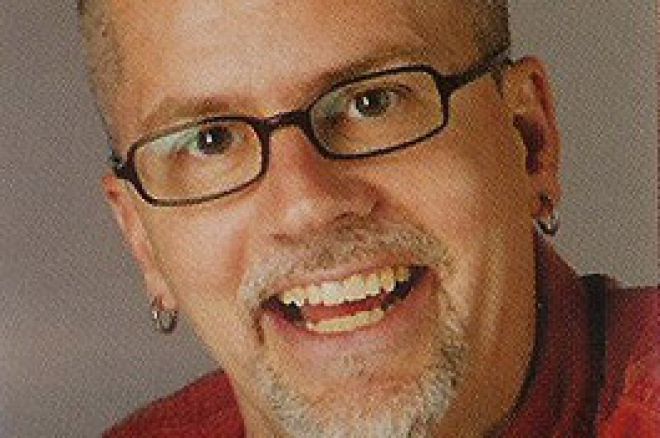
A perusal of the Player of the Year race will show that there are, among the many foreign players, several Canadians who are making some noise, including Gavin Smith (2005 Mirage Poker Showdown Champion), Haralabos Voulgaris (second at the 2005 L. A. Poker Classic), and Doug Lee (2005 WSOP Circuit Las Vegas Champion). To add on to the list, last year's POY, Daniel Negreanu, still considers himself a Canadian (born and raised in Toronto) although he now lives in Las Vegas. The explosion of poker north of the border is one that the leader of "Team Canuck" and Canada's foremost poker authority, Dave Scharf, can take pride in for being the driving force in the game there.
Many of you might not have heard of Dave Scharf, but his involvement in the game dates back to his youth. Poker games in the basement as a child turned into a passion for Scharf as he discovered that he could supplement his living through blackjack in the eighties. As poker came to Canadian casinos in the early nineties, Dave discovered the thrills and successes of poker. He hasn't turned back since then.
Dave was the publisher of Canada's first poker magazine, Canadian Poker Monthly, in 1997 and was a formative figure in the Canadian Poker Tour. He has consulted with many casinos in Canada as to the their poker arrangements. He has contributed his writings to such publications as CardPlayer Magazine, Poker Digest and others too numerous to mention. In addition, he has recently added on the title of "host" of the United Poker Forum (UPF), where he adds a great deal with his commentaries and posts.
While he considers himself a semi-professional player (he is also a morning radio personality in Saskatoon, Canada), Dave has won several tournaments in Canada and competes in America from time to time, especially around the time of the World Series. I recently sat down on the phone with him for a conversation on poker in the Great White North and many other things.
PN: Dave, what is the Canadian poker scene like?
DS: Well, it is a relatively recent phenomenon. I predicted that we (the Canadians) would come along, however. I knew there was going to be an explosion in the United States and the next great bunch of players would come from Europe. Canada's been behind this growth, but over the last couple of years, we really have been catching up and now it is showing.
I think the big problem for some time was it was very difficult to find big games here. Now, the game is healthy and there are some big tournaments going on. Overall, though, it isn't a surprise to me that Canadian players are doing so well.
PN: How has the Canadian Poker Tour done since you helped in its creation?
DS: It has been a thrilling success! This year's Canadian Poker Tour Championship event had its biggest year yet as far as the number of players. We have also been able to secure broadcasting rights on it with Rogers Sports Network here in Canada, so that's been a pleasant turn. We're not reinventing the wheel with poker in Canada (chuckles), but it has been a success to this point.
PN: What drew you to become the "host" of the United Poker Forum?
DS: They asked me! (Laughs) No, really, it seemed like a natural thing for me to do. With all of the writing that I have done, it was an extension of things that I have been doing for the last ten years. When UPF and Roy Cooke parted, amicably I must say, they asked me and I said yes.
PN: What does UPF do that other poker forums don't?
DS: It seems more like a community to me than others do. There is a sense of family and a true desire to improve your game through the discussion of it.
PN: You are frequently posting there too, Dave. What can a message board do to improve a player's game?
DS: I think they are an incredible way to access a huge amount of experience and information. Through the discussion of a particular hand you might have had, you can learn different things that can improve and educate yourself in poker. One of the big things to remember is we're always learning about this game. It is indeed humbling and important to ask questions, how else will you improve?
PN: I also wanted to ask you about your book, "Winning At Poker" (published in 2003). You preach a very conservative style of play in it. Is it more a "profitable" way to go about the game or an approach for a new player?
DS: I think it is a very good way for a new player to go about it, Earl. Then again, it is profitable as well! What I talk about in "Winning At Poker" and what two other authors I admire, Lee Jones and Lou Krieger, talk about in their books are great ways to attack a game. You don't win because you are so much better than other players, you win because you take advantage of the factor that your opponents are that bad.
It is a good starting point for anyone and is good for reinforcement. Of course, as your game gets better, you start to put your touches on it. When I make a play at the tables, sometimes people will ask me, "What chapter is that in?" (Laughs)
PN: Why hasn't "Winning..." been more accepted in the poker community?
DS: Oh, I don't know that it hasn't. The publisher, Chartwell Books, wanted to get a book on the market and asked me to write one. When they ship out the books, they don't take them back, so sometimes it shows up on a discount rack in a bookstore.
PN: I know, I do have to tell you that it was priced higher than Traci Lords' autobiography, though.
DS: (Laughs hard) And there's more information in my book! Seriously, the book is now in its second printing and I am glad they asked me to do it. While it hasn't exactly been in the mainstream, it has been successful and it is something I am proud of.
PN: How much of poker is innate and how much of it is learned?
DS: Great question! My short answer would be "I have no idea," but if you sit back and think about it, some of poker has to be an innate ability. For example, when I was in high school, they had these tests, the General Scholastic Aptitude Tests...
PN: Yeah, I remember those too...
DS: OK, so you know what I am talking about. Anyway, in the spatial analysis testing, I placed in the 98th percentile there. That's where you take a flat object and figure out what three dimensional object is created. It was something I was always good at, and I thought everyone else was too. It wasn't until I was in the Navy and I was trying to instruct others in map reading and these three dimensional thought processes that I saw that some people had the ability and some people just didn't!
Sometimes as humans we have different skills in different things. I do see that there are some things that all good poker players have. They have a calm demeanor, they understand people and their thought processes, they have an empathy, a feel for things...there's some math, but not a lot. There is also a tremendous amount of patience as well.
PN: I agree. That's something that hurts me online is that I don't have quite the time I would like to think things through.
DS: Yes, I don't play as well online as I do live, either.
PN: What online sites do you play at?
DS: I play online at PlanetPoker and at ParadisePoker. Oddly enough, they were the first sites that came along and I have never left them!
PN: How has the online game affected the game today?
DS: It has made the game what it is today! Online rooms were around before television came into it and, along with television, they have both been the driving forces in the game today. You can play anytime, for whatever stakes and anywhere. You don't have to go to a cardroom to do it. Online poker has, in general, made the game of poker acceptable.
PN: You don't consider yourself a "professional" player. Why is that?
DS: I simply don't make my primary income through poker. I have been changing my views on that, though. I have always been proud of the factor that I am an amateur and that it is OK to be that. I'm not afraid of any player, be they amateur, semi-pro or professional. It seems artificial to me to call yourself a professional. Television skews that term somewhat as they pitch the product, especially to younger audiences.
PN: Do pros have an advantage over the semi-pros or amateurs?
DS: It depends. What are the definitions of those terms? The point of poker is to make the correct decisions. Whoever makes the least wrong choices, because even those that are professionals are going to make them, is the one who will normally win a tournament. In that look, there's not much advantage at all.
If you look at it, of all players about five percent make money, 30% break even and 65% lose. When you take that and look at a final table in a tournament, you realistically have to say that half of the table are in that 65% bracket. Therefore, if you're a pro or not, it doesn't really matter.
PN: I wanted to ask you about "Team Canuck". It seems like you all have a good time. Can an American join?
DS: (Laughs) Well, we are all great friends and we do have a great time. I don't know how it came to be us as a team. It was funny when Devin made the final table during the World Series and Norm Chad joked about us being "the Canadian Crew"! (Laughs again)
Bob Jarrett is the only true professional among us. He plays poker definitely for a living and does well with it. He is a tremendously fun person. Ralph Mair is my best friend of the bunch. And I've known Devin (Armstrong) since we were at Canadian Poker Player magazine. He's a great guy as well.
PN: What should a player do when they take their shot at tournaments? Should they play through the preliminary tournaments or take their shot at the Big One?
DS: It really depends. What do you want out of the game of poker? Every individual has to ask themselves that. Don't use what you see on television as a motivation for doing it. That can be a fantasy. Poker is fun, remember that! It is something I don't lose sight of whenever I play.
PN: Dave, what is the future of the game, both online and in the physical tournament world?
DS: The two will eventually blend together, Earl. In the beginning of the World Poker Tour, you saw the online rooms running tournaments that were a part of the schedule. Now, because of the legalities, they aren't mentioned that they sponsored those tournaments, like PokerStars, UltimateBet and PartyPoker. That will go away, eventually, and the online rooms and the B&M worlds will have more of a merge than ever before.
I think 2006 will be the pinnacle of the game. Right now, poker seems to be a pop culture phenomenon that everyone wants to be a part of. We had over 5,000 players at the World Series Main Event this year. It isn't likely we will continue to have that doubling or tripling of the field that we have seen in the last few years.
It will level off; you won't be seeing poker show up in People Magazine! But, having said that, it will still be popular WAY above what it would have been had this explosion not come along.
PN: What can we expect in the future from you?
DS: I am excited with hosting the UPF. I enjoy being the leader of Team Planet for the 2006 World Series and the things that PlanetPoker is doing. I am interested in writing some more as well. I wonder if I have another book inside of me, though! I think, in some ways, I still have a credibility issue, as I haven't shaken the poker world with a big championship or something like that. And, as always, I will always continue to try to understand the game of poker and get better as a player.
I want to thank Dave for a very entertaining and enlightening conversation and encourage you to check out his postings at the United Poker Forum. Whether you are a new player to the game or a person who needs to tweak their games some, there are very good players there, including Dave, who can help. You also need to check over Dave's website at canadianpoker.com, where his writings are posted as well as more information on the Canadian poker scene.
Ed Note: Titan Poker are a great place to play, we suggest you give them a try.

